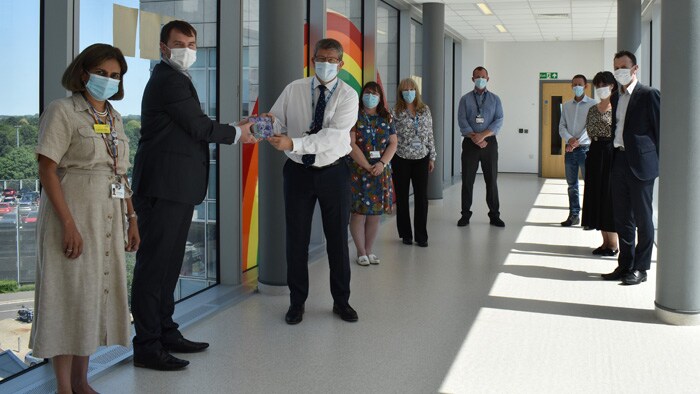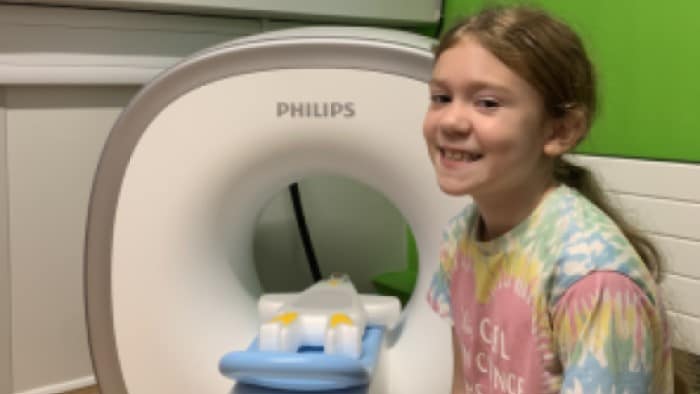Aug 18, 2021
North West Anglia NHS Foundation Trust implements fully digital histopathology solution, resulting in improved clinical outcomes in complex cases
Farnborough, United Kingdom - Royal Philips (NYSE: PHG, AEX: PHIA), has supported the North West Anglia NHS Foundation Trust (NWAngliaFT) to introduce digital histopathology capabilities to help improve patient outcomes by quicker referrals and diagnosis in the region. The digital pathology solution will also help Peterborough City Hospital, part of NWAngliaFT, to manage the anticipated backlog of cases as a result of the COVID-19 pandemic through improved speed of reporting and by facilitating much quicker transfer for second opinions, enabling case reviews between multiple professionals and aiding higher quality training. In April 2020, the Histopathology Department at Peterborough City Hospital experienced a slowdown in routine pathology work coming into the laboratory during the first COVID-19 lockdown. During this period, the department installed the Philips Digital Pathology Solution, including two Ultra Fast Scanners and Philips Image Management Software, a solution that can be used to digitally analyse pathology images instead of using the traditional glass slide method. Dr David Bailey, Consultant and Clinical Lead for Cellular Pathology at Peterborough City Hospital commented: “As a 30-year veteran of reading glass slides on a microscope, I could never have imagined that I would ever find digital pathology as useful as glass microscopy. Now that we have it, I believe the image quality and functionality represent major improvements, and that we sometimes see things on digital that we don’t necessarily pick up on glass.” Since the commencement of the recovery phase following the COVID-19 pandemic, the Trust’s Histopathology Department has seen a 25% increase in slide workload. The digital pathology solution has enabled the team to moderate the impact of this increased workload by enabling quicker diagnosis, while also facilitating speedier transfer of complex cases for second opinions and the opportunity to collaborate with multiple professionals from other hospitals.
We had a patient with a potential liver cancer diagnosis and, due to the digital system being in place and our ability to give rapid access to the digital slides to a specialist for a second opinion, the biopsy could be analysed by the multidisciplinary team the next day, compared to the usual turnaround time of 7-10 days. This meant the patient and their family received the outcome of the diagnosis the next day, while also bringing forward their treatment pathway by a week.”
Dr David Bailey
Digital pathology also facilitates remote working which has proved invaluable during the COVID-19 pandemic, with clinicians able to analyse slides at home in a safe environment and away from the hospital. Furthermore, and considering that all new potential cancer cases receive a second opinion, the ability to share slides virtually has changed the way new cancers are reviewed within the team during and after the pandemic. This new virtual capability has also benefitted the way training is delivered, allowing histopathology trainees to take part in case reviews remotely. In addition, digitisation creates new opportunities within the Trust to explore novel technologies including artificial intelligence and the use of algorithms to pre-screen cases and perform counting tasks (such as for proliferation markers and molecular scoring, e.g. PD-L1 and other cancer-related markers). Dr Bailey concludes: “The move to digital pathology has the potential to future proof the Histopathology Department at Peterborough. Not only does it allow for faster reporting and virtual case reviews that speed up clinical outcomes for patients across the region, it is also very appealing to younger pathologists who want to work at the cutting edge of technology.” For more information on Philips digital pathology solutions, please visit: https://www.philips.co.uk/digitalpathology
About Royal Philips
Royal Philips (NYSE: PHG, AEX: PHIA) is a leading health technology company focused on improving people's health and well-being and enabling better outcomes across the health continuum – from healthy living and prevention, to diagnosis, treatment and home care. Philips leverages advanced technology and deep clinical and consumer insights to deliver integrated solutions. Headquartered in the Netherlands, the company is a leader in diagnostic imaging, image-guided therapy, patient monitoring and health informatics, as well as in consumer health and home care. Philips generated 2020 sales of EUR 17.3 billion and employs approximately 77,000 employees with sales and services in more than 100 countries. News about Philips can be found at www.philips.com/newscenter.
Topics
Contact Details Emily Wells-Burr Integrated Communications Manager Tel: + 44 (0) 7825 105 685 Email: emily.wells-burr@philips.com









